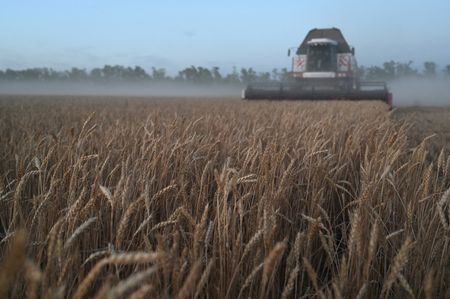By Sachin Ravikumar
LONDON (Reuters) -A multi-million-pound British government scheme to help exploited migrant care workers find new work has largely failed due to barriers including high visa costs, research showed on Thursday.
The research by the London-based Work Rights Centre comes after the charity found last month that only 3.4% of the more than 27,000 carers who were contacted through the so-called rematching scheme had found work.
Nearly a third of carers in England – workers who support the elderly and other vulnerable people – are migrants.
Many have faced abuse or exploitation since arriving to fill severe labour shortages following Britain’s exit from the EU.
Charities have called on the government to reform work visas, which are tied to employers or “sponsors”, which they say creates a power imbalance that leads to exploitation, including fraudulent fees being charged, debt bondage and modern slavery.
The government launched the 16 million pounds ($22 million) scheme last year to support migrant care workers who found themselves out of a job after sponsorship licences were revoked from care firms amid a crackdown on exploitation.
The government had no specific target set for how many workers would be helped.
The Work Rights Centre said that exploited migrant workers, often facing financial constraints, were unable to afford the high visa costs required to move into a new job through the scheme, or meet the expectation from employers that they have access to a car in order to visit private homes.
“A slim chance at obtaining a new job cannot be the only thing this government offers in compensation for the exploitation and debt victims have suffered due to ministers’ refusal to reform this flawed visa scheme,” said Work Rights Centre Policy Manager Adis Sehic.
Other barriers to finding jobs through the scheme included a lack of awareness of its existence, the inability of workers to get references from employers with revoked licences and strict English-language requirements from employers, the charity said.
($1 = 0.7357 pounds)
(Reporting by Sachin Ravikumar;Editing by Alison Williams)









